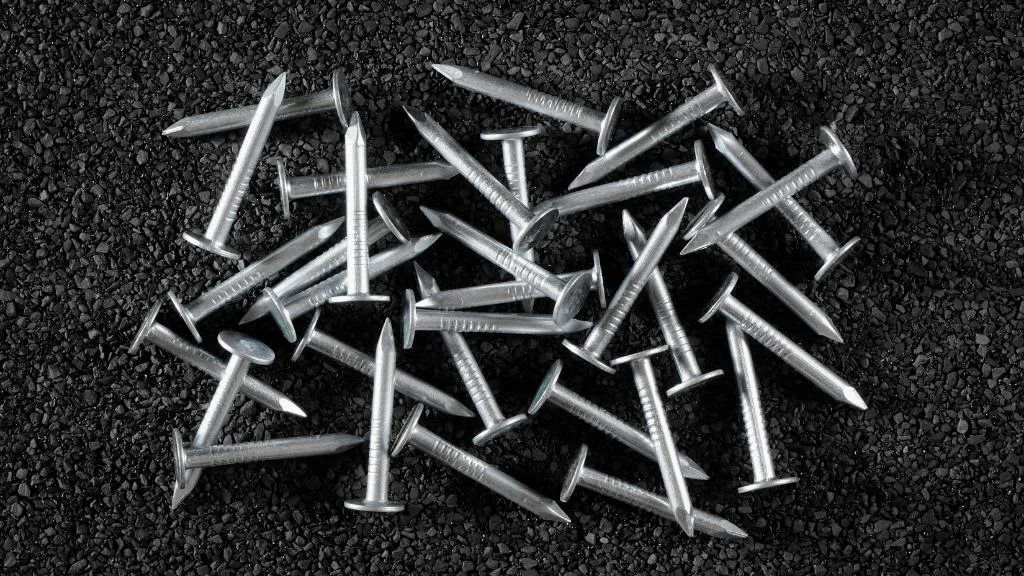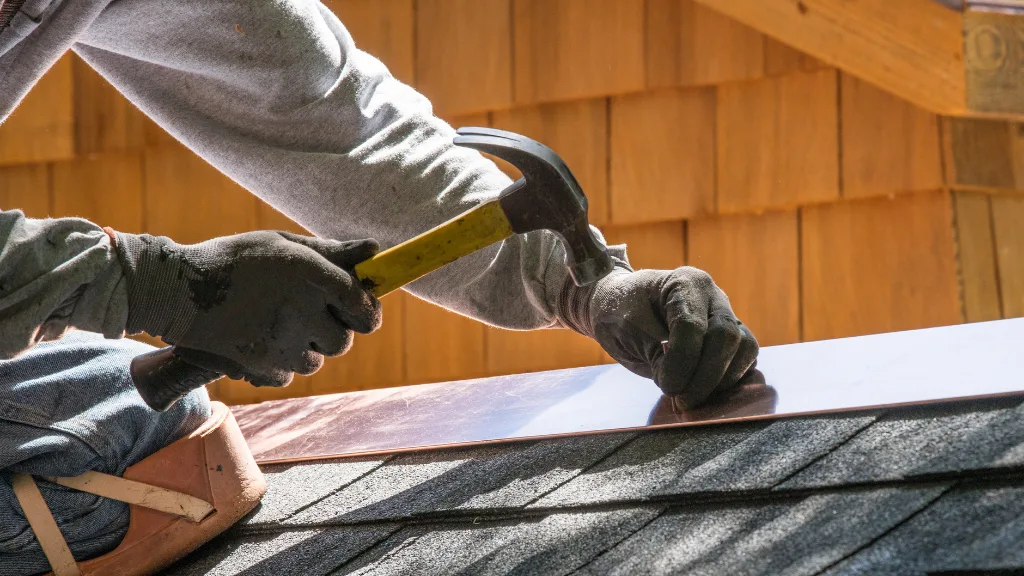
There are many different types of roofing nails on the market today, but not all are created equal. In this blog post we give you Helpful Tips in Choosing Roofing Nails to ensure a sturdy roof!
The right type of nails for your job depends on the material you’re working with and what kind of jobsite conditions you’ll be facing.
- What are the different types of roofing nails?
- Which is better: galvanized or stainless steel?
- What type of roofing nails are right for your roof?
- Nails that are best for your specific type of roof
- What are the main differences between nails, screws, rivets and staples?
- What are the common mistakes people make when choosing their roofing nails?
- What else should you consider besides the price when choosing roofing nails?
- Final Thought
With that in mind, here’s a quick guide to help you choose the best options available to you.
The first thing to consider is what material your roofing project will be made out of – asphalt shingles, metal or tile?
Different materials require different kinds of nails so it’s important to make sure that whatever nail option you go with is compatible with your choice in material.
Another factor worth considering is how much time and effort it will take for each nail set properly into place because this will determine how much you’ll need to invest in your material.
What are the different types of roofing nails?
Roofing nails come in a variety of different shapes, sizes and finishes. Here are some examples:
Flat-Head Roofing Nails – Flat head roofing nails have a flat top with an extra large diameter to make sure they’re secure on the shingle’s surface.
They also feature wide heads that will help prevent them from punching through your shingles.
Large Diameter Roofing Nails – Large diameter roofing nails are very similar to flat-head roofing nails except that they have a large head which will prevent them from punching through the shingle’s surface and their extra wide heads make sure it’s secure on the shingle’s surface as well.
They also feature a large diameter to make sure they’re secure on the shingle’s surface.
Headless Roofing Nails – Headless roofing nails have a smooth top with no head and are designed for applications where you don’t need it to be visible, though some of them do come in bright colors that can actually add aesthetic value to your shingles.
Stainless Steel Roofing Nails – These nails are made from 100% stainless steel and will never rust which makes them perfect for wet, windy or coastal conditions.
They also help prevent nail corrosion by covering the head with a protective layer of zinc which means they’ll hold up longer than regular roofing nails.
However, stainless steel roofing nails don’t have the same gripping power as other types of roofing nails so they’re not ideal for shingle roofs.
Which is better: galvanized or stainless steel?
Galvanized and Stainless Steel Nails both help prevent nail corrosion by covering the head with a protective layer of zinc which means they’ll hold up longer than regular roofing nails.
However, Stainless Steel Roofing Nails don’t have the same gripping power as other types of roofing nails so they’re not ideal for shingle roofs whereas Galvanized Roofing Nails are great options to use on all kinds of different substrates including wood and metal which makes them a stronger choice overall.
What type of roofing nails are right for your roof?
Although all different types of roofing nails have their own unique benefits, the most popular choice amongst contractors and homeowners alike is probably galvanized roofing nails.
Galvanized Roofing Nails are great options to use on all kinds of different substrates including wood and metal which makes them a stronger choice overall.
They’re also available in different lengths which allows you to customize your purchase depending on what kind of shingles or roofing material you’ll be working with so that’s another reason why they tend to be the most popular option.

Nails that are best for your specific type of roof
- Concrete nails are great for metal roofing projects.
- Made from hardened steel, these lightweight nails will resist corrosion and won’t damage the material you’re working with.
- For asphalt shingle roofs, galvanized ring shank is recommended because they’ll prevent rust stains on your materials while also being strong enough to withstand high winds.
- For tile roofs, stainless steel roofing nails are the best option because they’ll resist rust and corrosion.
- They’re also easy to drive into place with a hammer or pneumatic nailer on your jobsite.
What are the main differences between nails, screws, rivets and staples?
Nails – Nails consist of thin metal rods with pointed ends that can be used for several different applications including roofing materials like shingles or tiles.
Screws – Scissor Action Fasteners consist of a helical screw and a specially designed washer.
These fasteners are used to secure roofing materials to various structures or substrates like wood, metal or concrete.
Rivets – Rivet Systems have become popular because they allow you to connect two dissimilar surfaces together quickly and easily without having to use adhesives.
Staples – Roofing Staples are used for fastening insulation boards and other roofing materials like felt or membrane to various substrates like wood, metal or concrete roofs.
They can also be installed in underlays as well which makes them a versatile choice overall.
What are the common mistakes people make when choosing their roofing nails?
- Not consulting with a professional contractor or roofing company – This is the most common mistake that people make.
- You should always consult with someone who knows what they’re doing and can help you choose an option that will work for your specific project whether it’s shingle, tiles, metal roofs etc.
- Using nails instead of screws for cutting costs – While roofing nails are cheaper than screws, they’re not as strong so using them instead of the correct type is usually a big mistake.
- Not having enough fasteners on hand – If you don’t have enough nails or staples for your project then things can get difficult pretty quickly especially if it’s an expansive job that will take several days to complete.
- Not pre-drilling holes – If you’re using nails to secure your shingles or other roofing materials then you should always drill a hole first and use the appropriate sized bit because doing it without that step can result in splitting which will make your job much more difficult.
- Using inferior quality fasteners – Using cheap, low quality fasteners will only make your job harder and they’ll probably cause more problems than they solve so it’s never a good idea to go for the cheapest option.
What else should you consider besides the price when choosing roofing nails?
- Using a good quality fastener – Using a high strength or heavy duty nail can make your job much easier and it’ll also prevent splitting which is an issue that’s usually associated with using inferior quality options.
- Choosing between going with bulk purchases versus smaller quantities – If you’re going to be working with roofing materials for a long time then it might make more sense to purchase your fasteners in bulk because even if they’re slightly more expensive, it’s better than having to spend money on them over and over again.
- Choosing the right size of fastener for your project – You should always choose the right sized fastener for your job which means you should take measurements before purchasing anything.
It’s also a good idea to consult with someone who knows what they’re doing when it comes time to make the purchase because there are several options that fall under one specific type of fastening system like nails, screws etc.
Final Thought
There are many types, shapes and sizes of roofing nails. Depending on the type of shingles or roofing material you’ll be working with, galvanized nails are likely your best bet.
They’re also available in different lengths which allows you to customize your purchase depending on what kind of shingles or roofing material you’ll be working with so that’s another reason why they tend to be the most popular option.


